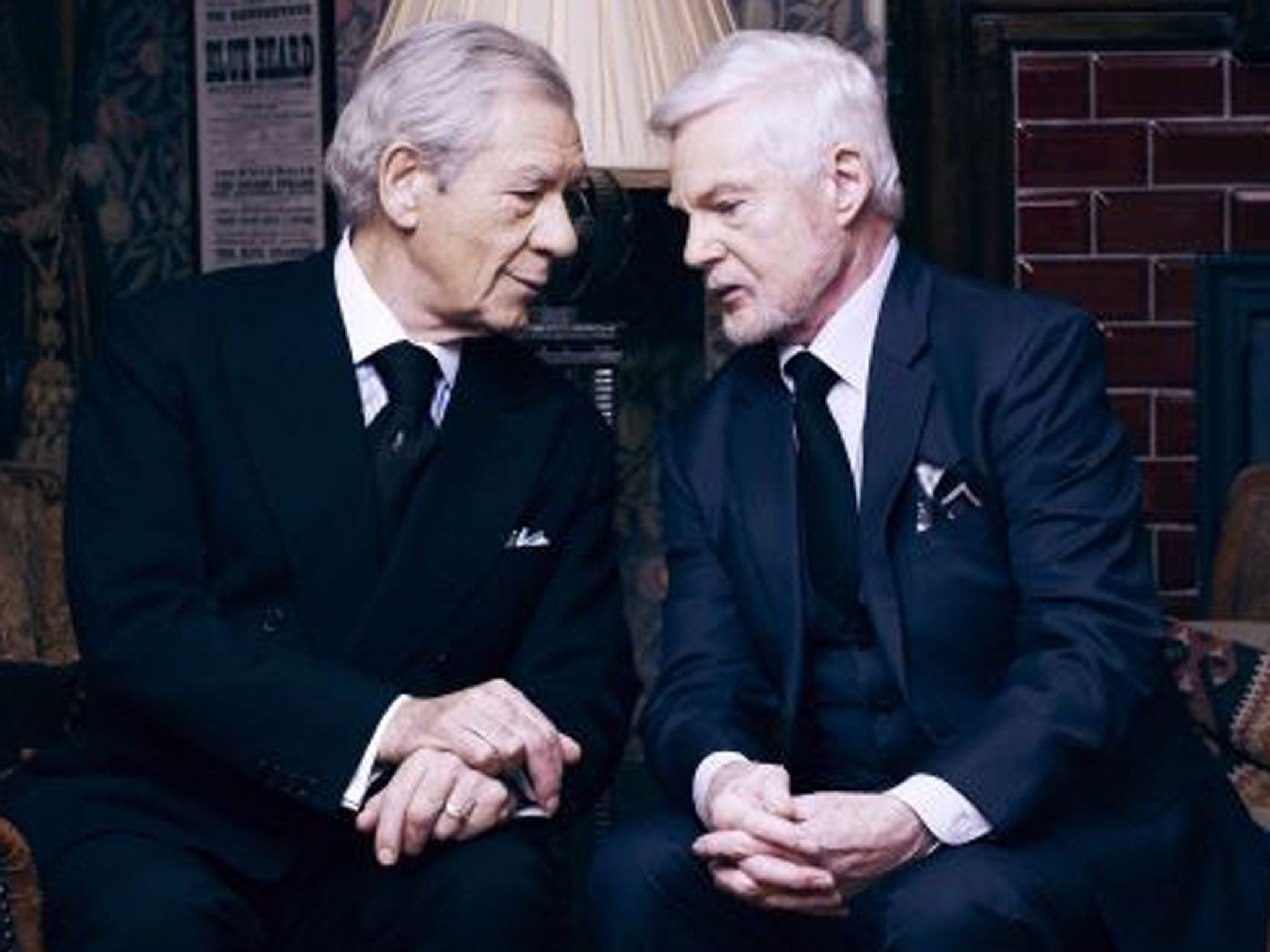If you say you like ITV sitcom ‘Vicious’ or ‘Django Unchained’ its more than a statement of taste
Plus: Ben Kingsley and the crime of the scene and Grand Theft Auto V has an LA lookalike that's just grand

What do we learn from divisive works? Or rather, since any work will divide the audience into countless fine slices of opinion, what do we learn from polarising ones, the kind that seem to demand an extreme reaction? You could take Vicious – ITV's new sitcom about an elderly gay couple – as a topical case in point, a comedy that was greeted in some quarters as the welcome restoration of the traditional sitcom to prime-time schedules and in others as a kind of state funeral for the form. Some people thought that Vicious was terrible, others, like Grace Dent, that it was hilarious – and while bad faith and good faith might have accounted for some elements of these reactions, the either/or nature of the response must have had a larger meaning.
The first instinct when you encounter such sharp contrasts is to take it as an instance of the unpoliceable nature of aesthetics. De gustibus non est disputandum, someone might say, and everyone nods in agreement and agrees to move on. It seems particularly true of comedy. You can fake a laugh, of course, but the person doing the faking is never fooled and there's no question that some people found Vicious genuinely funny while others looked on, jaws agape. No point either in saying, "but that line wasn't funny, therefore you were in error to laugh". The laughter is its own QED. Genially agreeing to differ is rarely quite what it seems, though. We might say "well, there's no accounting for taste, is there?". But what we secretly mean is, "on this occasion I have taste and you don't, but it would be impolite to insist on it".
The second instinct – which might be more fruitful – is to take the division as symptomatic of a different kind of disagreement. In the case of Vicious I found myself wondering whether the split in reaction might be put down to a kind of buried politics. The argument would run something like this. Camp bitchery – the central stock in trade of Vicious – is a kind of defence mechanism, a way of internalising homophobia and defusing it. To find it funny is to find it helpful, or – another version – to be offered a world safe enough for hostility to be played with. On the other hand, any defence mechanism that has a very long history can begin to look like an acquired disability.
Something like that certainly happened with another of this year's polarising releases, Quentin Tarantino's Django Unchained. As with Vicious, "meh" wasn't really an option. There wasn't a lot of middle ground between those who thought of it as trash with pretensions and those who saw it as a disruptive confrontation with feelings that had been too often smoothed out of sight in American life.
To say that you liked Django Unchained was not just to make a comment about the quality of the film but also to identify yourself with a certain political stance. And though every culture product is a badge of some kind these very polarised responses are often a clue to identities still under negotiation.
With Vicious I suspect something else was in play too. Audiences usually have a shrewd idea of what they want and where they're wanted. But occasionally something comes along that sends out confusing signals. Co-created by Mark Ravenhill and starring Ian McKellen and Derek Jacobi, written by Gary Janetti but filmed as a museum piece, it was difficult to know in advance who Vicious was aimed at.
The hubbub that followed may have been partly because it genuinely divided its audience, but it was also because the audience that turned up hadn't been able to do any dividing beforehand.
Kingsley and the crime of the scene
I can't say much about Ben Kingsley's role in Iron Man 3 or the Spoiler Police will take me away in nylon handcuffs. But I think it is permissible to say that he delivers a dictionary definition of "scene stealing" at one moment, in a performance so fleet and inward that it (nearly) eclipses his turn as Don Logan in Sexy Beast. More interestingly, he raises the possibility of a larger category of theatrical larceny – what you might call the "stealing scene", a sub-section of a work which is sufficiently good to suck the oxygen from the rest of the film. Before the scene, Iron Man 3 is not bad. After it, you can't avoid a sense of how dull "not bad" can be.
LA lookalike that's just grand
I confess to a slightly unseemly excitement about the recently released trailers for Grand Theft Auto V, less because of the cinematically indebted narrative lines that they seem to hint at but because of the glimpses you get of Los Santos, the LA lookalike that Rockstar games have spent several years creating. Video-games creators tend to think that sophisticated narratives will be the thing that definitively make the case for their form as art. But I suspect that it's the fidelity of their simulated backdrops that will prove the best route to serious consideration. Los Santos, empty of its slightly cardboardy principal actors, is captivating in its scale and detail. My advice for the Eisensteins of video gaming would be don't look to films for a model, or to the novel. Look at the world.
Join our commenting forum
Join thought-provoking conversations, follow other Independent readers and see their replies
Comments
Bookmark popover
Removed from bookmarks